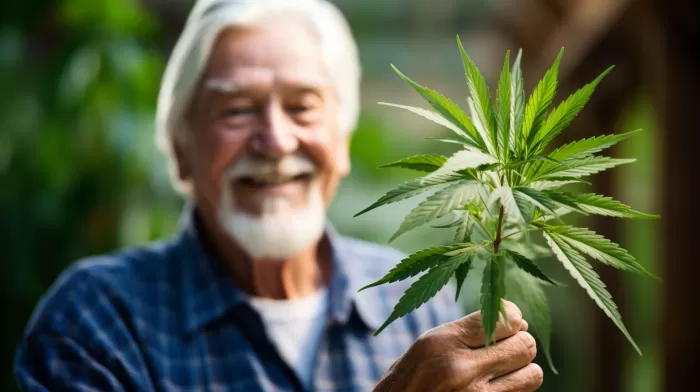As the famous singer/songwriter Bob Dylan turns 72 this year, a line from his song “Rainy Day Women #12 & 35” comes to mind: “Everybody must get stoned.” Researchers believe that this may be good advice for seniors living in nursing homes, and recent studies have shown the numerous benefits of using marijuana for treating various symptoms and conditions that debilitated seniors face.
One such study was conducted in Israel, where researchers used marijuana from a farm called Tikkun Olam, which refers to the Jewish concept of healing the world. The study aimed to test the impact of providing medical cannabis to 19 residents of an Israeli nursing home.
The results were outstanding. Not only did participants experience dramatic physical results, including healthy weight gain and a reduction of pain and tremors, but the nursing home staff observed an immediate improvement in the participants’ mood and communication skills. Moreover, the use of chronic medications was significantly reduced.
Over the course of a year, the 19 patients aged between 69 and 101, were treated with medical cannabis in various forms, such as powder, oil, vapor, or smoke, three times daily. These patients, who suffered from conditions such as pain, lack of appetite, muscle spasms, and tremors, were closely monitored by researchers and nursing home staff.
As the study progressed, signs of improvement were observed in the overall life quality of patients, such as mood and ease in completing daily living activities. In fact, 17 patients achieved a healthy weight after gaining or losing the required number of pounds. Muscle spasms, stiffness, tremors, and pain reduced significantly for most patients.
Furthermore, almost all patients reported an increase in sleeping hours and a decrease in nightmares and PTSD-related flashbacks. According to the researchers, there was a notable decline in the amount of prescribed medications taken by patients, such as antipsychotics, Parkinson’s treatment, mood stabilizers, and pain relievers. By the end of the study, 72% of participants were able to reduce their drug intake by an average of 1.7 medications a day.
The use of medical marijuana has a controversial history, with proponents advocating for its various medicinal benefits, while critics argue against its potential for abuse and negative side effects. However, this study and many others like it highlight the potential of marijuana use for seniors, particularly those living in nursing homes and struggling with chronic pain, poor appetite, and other debilitating symptoms.
The reduction of medication intake is another critical benefit from this study. Many prescribed drugs that seniors regularly consume often have severe side effects and can become addictive. By providing an alternative treatment option with fewer associated risks, medical marijuana might help seniors lead healthier, happier lives with less reliance on pharmaceutical drugs.
Besides decreasing tremors, pain, and the use of medication, medical marijuana has been shown to improve seniors’ mental health. In the aforementioned study, nursing home staff saw an immediate improvement in the participants’ moods and communication skills, highlighting the potential of medical marijuana as an alternative treatment option for seniors struggling with depression, loneliness, or anxiety.
In conclusion, while medical marijuana may not be suitable for every individual senior, the growing body of evidence suggests that it could provide numerous benefits for those living in nursing homes. As seniors often face a host of physical and mental health issues, the potential of medical marijuana for reducing symptoms, improving mood, and decreasing reliance on medications should not be overlooked. To ensure the best results, it is essential that any use of medical marijuana is closely monitored by healthcare professionals responsible for a senior’s well-being.



